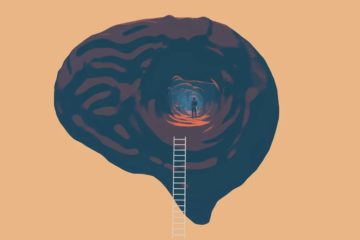Oshan Jarow in Vox:
 In 1998, at the conference of the Association for the Scientific Study of Consciousness (ASSC), the neuroscientist Christof Koch made a bet with the philosopher David Chalmers: by 2023, science would be able to explain how the brain’s tangle of neurons gives rise to the phenomenon we call consciousness. The winner would get a case of wine. Koch was a professor of cognitive biology who helped pioneer the mechanistic study of the “neural correlates of consciousness,” which maps the relationship between brain activity and subjective experiences. He believed that consciousness was fundamentally measurable and that it was only a matter of time before science identified how it arose in the brain.
In 1998, at the conference of the Association for the Scientific Study of Consciousness (ASSC), the neuroscientist Christof Koch made a bet with the philosopher David Chalmers: by 2023, science would be able to explain how the brain’s tangle of neurons gives rise to the phenomenon we call consciousness. The winner would get a case of wine. Koch was a professor of cognitive biology who helped pioneer the mechanistic study of the “neural correlates of consciousness,” which maps the relationship between brain activity and subjective experiences. He believed that consciousness was fundamentally measurable and that it was only a matter of time before science identified how it arose in the brain.
Chalmers was both a philosopher and cognitive scientist who was skeptical that science would be able to build explanatory bridges between neural correlates in the brain and the subjective experience of consciousness. Famously, he called consciousness “the hard problem,” which he believed was sufficiently challenging to keep any explanation of consciousness at bay for at least a quarter of a century. At the 26th ASSC conference this past weekend, 25 years after the initial wager, the results were declared: Koch lost. Despite years of scientific effort — a time during which the science of consciousness shifted from the fringe to a mainstream, reputable, even exciting area of study — we still can’t say how or why the experience of consciousness arises.
Galileo split consciousness away from science 400 years ago
While the Western science of consciousness only grew into a reputable field over the past few decades, part of the reason answers remain so elusive may be buried in the deep structure of scientific inquiry itself, reaching back to the 1600s.
More here.
